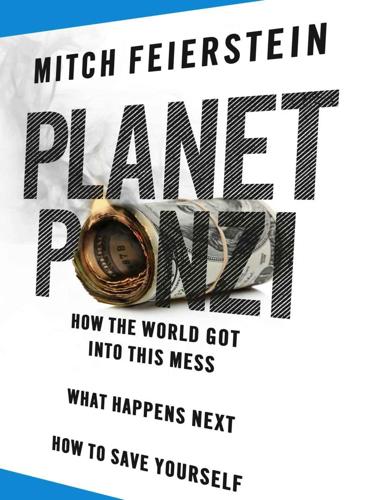
Planet Ponzi
by
Mitch Feierstein
Published 2 Feb 2012
So temporary came to mean permanent. Yet when the Congressional Budget Office drew up its forecasts, it was constrained by the terms of its mandate to base its numbers on the assumption that existing law would be implemented in full—that is, assuming the Bush tax cuts would expire. Although government statisticians themselves are honorable and truthful people, the dodges forced on them by government mean that we can’t trust their data. Or rather, we can trust it in one direction only. We know that the true position of the United States is at least as bad as that $75.2 trillion statistic implies—it’s certainly not going to be better than that—but broader, less optimistic estimates imply that the true position is very much worse.
…
If there’s a buy-one-get-one-free offer on salads, they’ll walk out of the store with plenty of salad in their baskets. The problem for statisticians is how to handle this consumer behavior. The older, more rigorous methodology was clear. If the price of a fixed basket of goods went up by 1%, then inflation was 1% over the period in question. Government statisticians prefer to avoid this clarity and this rigor, and reweight the basket of goods each month in a way that reflects consumer efforts to avoid price increases.3 In effect, we have a measure of inflation which deliberately exploits the inflation-avoiding behavior of consumers to generate an inflation rate far lower than the one we actually experience.
…
The bad news is that the prices of crude oil, coal, diesel, gasoline, natural gas, jet fuel, heating oil, coffee, tea, barley, maize, rice, wheat, beef, pork, shrimp, sugar, coconut oil, palm oil, peanut oil, soybeans, wool, logs, sawn wood, hides, rubber, aluminum, copper, gold, iron ore, lead, nickel, silver, steel rod, reinforcement steel, tin, uranium, zinc, fertilizer, potassium chloride, rock phosphate, urea, and various other commodities related to those on this list have increased by at least 10% and in many cases much more than that over the course of a year. To a government statistician, these data provide firm evidence of the need for a fishmeal-and-oranges inflation index. To the rest of us, they’re evidence of a serious, underreported, and dangerous tide of inflation.8 Threat is one thing; response is another. There are some inflationary pressures not even the most vigorous action by the Federal Reserve can just wipe out—China’s rapid growth and consequent demand for raw materials, for example.
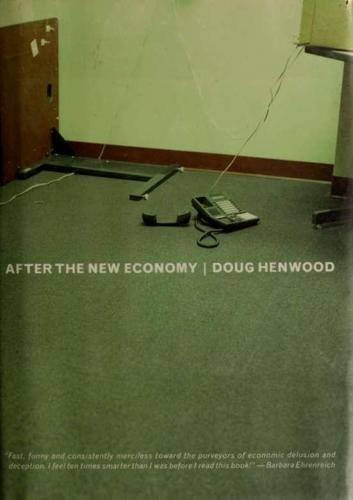
After the New Economy: The Binge . . . And the Hangover That Won't Go Away
by
Doug Henwood
Published 9 May 2005
A disproportionate number of them have been women—something that continues to be the case—and much of the work has been done not by economists, most of whom are interested in things far more elevated than the welfare of the toihng masses. but by sociologists, social workers, union researchers, and government statisticians. Though most poverty researchers have had meUorative intentions, not all have. In his excellent reviev^ of the history of the U.S. poverty Hne, George Fisher (ibid.) reviews the work of one Wilbur Atwater, who theorized that U.S. workers were too profligate in their food-buying habits, and that more careful provisioning would reHeve employers of the need to pay higher wages.
…
ON VO Long-term mobility is illustrated in the table above. Most income moves are to nearby quintiles; long moves are rare. Ceilings seem stickier than floors; people are more likely to stay in the top quintile than the bottom. Wealth Wealth is a lot more intensely concentrated than income, though it gets less prominent attention from government statisticians. (Voyeuristic attention from the tabloids is another story.) Though the Census Bureau does look at assets as part of its Survey of Income and Program Participation (SIPP), the best look at wealth comes from the triennial Survey of Consumer Finances (SCF), sponsored by the Federal Reserve.
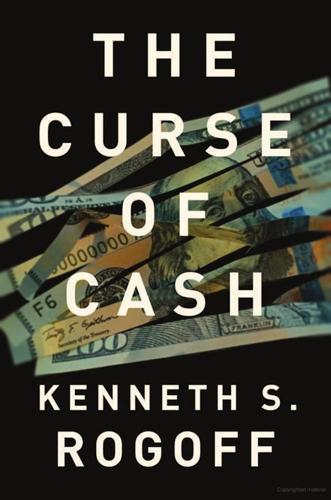
The Curse of Cash
by
Kenneth S Rogoff
Published 29 Aug 2016
Tax Evasion in Europe Because the United States is a relatively low-tax country, and because it relies so heavily on income taxation as opposed to VATs (value-added sales taxes), compliance is likely higher than in most advanced countries.11 Unfortunately, indirect methods and partial data are all that exist to estimate tax evasion for Europe, as most European countries do not report overall results for the kind of detailed randomized audits that the United States has released.12 Michigan economist and public finance expert Joel Slemrod cites internal Organisation for Economic Co-operation and Development (OECD) estimates of noncompliance for VATs, which are very important in Europe, of 4–17%.13 We do know that tax levels are higher in Europe than in the United States and regulations are (arguably) more burdensome. Most research suggests that the underground economy is correspondingly higher in Europe as well.14 Estimates vary widely, and there is a huge amount of uncertainty; governments put vast resources into measuring conventional aboveground income, and yet government statisticians acknowledge a broad error band around their estimates. Information on the underground economy is limited, and estimates necessarily involve indirect approaches. Definitions also differ across studies of the underground economy, for example, whether or not it includes all criminal activity or just tax and regulatory evasion.
…
It is an interesting idea, and in fact one I explored in a paper 30 years ago that also introduced the general idea of inflation targeting.7 My paper recognized the stabilization advantages of nominal GDP targeting but argued that it might put the central bank under direct political pressure to achieve an unrealistic and unsustainable level of output. As a consequence, nominal GDP targeting might lead to an upward bias in inflation, greater volatility of output, and risks to central bank independence. Another fundamental issue is that GDP is a variable that is measured very imperfectly, with government statisticians often considerably updating their estimates over time, sometimes years later, sometimes quite dramatically.8 For example, the number of technical recessions experienced by the United Kingdom between 1955 and 1995 (defining a technical recession as two consecutive quarters of GDP reduction) is ten if we use the 1996 official UK historical GDP series, but it drops to seven if we use the 2012 official series.9 (Note we are counting recessions prior to 1996—or trying to count them, anyway.)
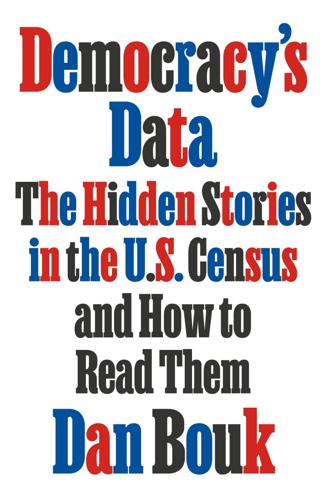
Democracy's Data: The Hidden Stories in the U.S. Census and How to Read Them
by
Dan Bouk
Published 22 Aug 2022
Pepper continued, explaining just how high the stakes seemed to him: “Upon the integrity of this census will depend the number of representatives that the states have in the House of Representatives for the next 10 years. Upon its integrity will depend the reliability of our knowledge about our country and its people for the next decade. If the integrity of one census is destroyed, it weakens the integrity of all censuses.” On that same broadcast a high-ranking government statistician scolded one of Tobey’s allies, insisting that the census was “one of our most important non-partisan inquiries upon which every individual in the United States depends for basic information for the next ten years, and you would destroy it.”70 Soon, though, the Census Bureau decided to declare a (possibly preemptive) victory.
…
It became impossible to pretend that the data, like the democracy it served, could do no harm. * * * A year after the Question Men convened in the Commerce Department’s auditorium, Moriyama walked into that same colonnaded building to begin what would be a long and distinguished career as a government statistician. As he sat down to his first day of calculations, as he wrote his first memorandum, trying on his official status as a “biometrician,” the ongoing world war may have felt far away. Maybe Moriyama thought about his younger brother, Hisashi, a trumpet player who had reversed their parents’ migratory path, returning to Japan in search of opportunities as a musician that America had withheld from him.
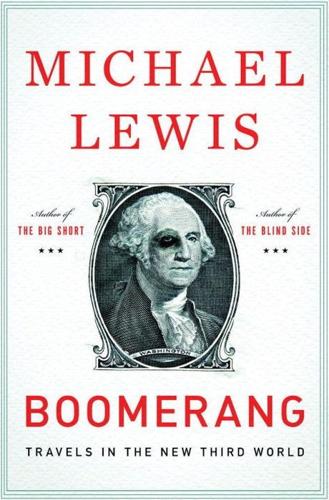
Boomerang: Travels in the New Third World
by
Michael Lewis
Published 2 Oct 2011
To lower the budget deficit the Greek government moved all sorts of expenses (pensions, defense expenditures) off the books. To lower Greek inflation the government did things like freeze prices for electricity and water and other government-supplied goods, and cut taxes on gas, alcohol, and tobacco. Greek government statisticians did things like remove (high-priced) tomatoes from the consumer price index on the day inflation was measured. “We went to see the guy who created all these numbers,” a former Wall Street analyst of European economies told me. “We could not stop laughing. He explained how he took out the lemons and put in the oranges.
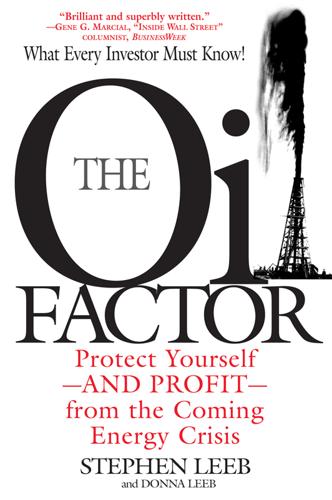
The Oil Factor: Protect Yourself-and Profit-from the Coming Energy Crisis
by
Stephen Leeb
and
Donna Leeb
Published 12 Feb 2004
It became an instant hit, widely prescribed by cardiologists. You can make a good case, however, that Lipitor is no more effective than extra doses of niacin—an inexpensive vitamin doctors have long used with heart patients—in concert with diet and exercise. The same goes for a lot of other new drugs. In general, once you put government statisticians in charge of assigning a value to quality, virtually anything goes. So-called quality improvements have been instrumental in the supposed productivity miracles of the 1990s, and therefore in the relatively slow inflation rate believed to have prevailed. If you believe, as we do, that the improvements in quality are for the most part either illusory or minimal, it means that inflation has been vastly understated.
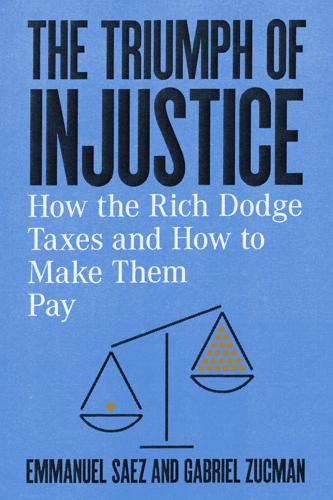
The Triumph of Injustice: How the Rich Dodge Taxes and How to Make Them Pay
by
Emmanuel Saez
and
Gabriel Zucman
Published 14 Oct 2019
Altogether, the synthetic, fictitious Americans in our database are fully representative of the US population. Their income adds up to total national income in the economy, and their income has grown on average 1.4% a year since 1980, matching the macroeconomic statistics. Our computations are in no way definitive. Our hope is that this work will be taken over and improved by government statisticians, and eventually that public agencies will publish their own official distributional national accounts. The national accounts we use today were created in much the same way in the middle of the twentieth century. In the meantime, we believe the merit of our work is its consistency (growth across the income ladder adds up to macroeconomic growth), transparency (our code and sources are publicly available), and universality (similar statistical methods are applied in other countries).6 1946—1980: HIGH AND EQUITABLE GROWTH What really happened in the era of quasi-confiscatory top marginal income tax rates?
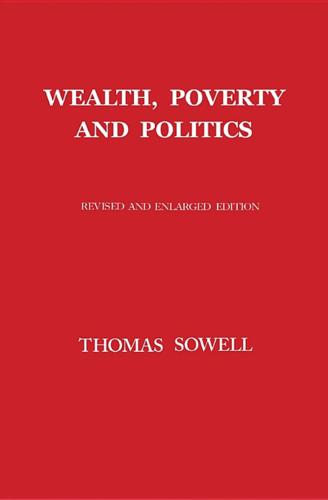
Wealth, Poverty and Politics
by
Thomas Sowell
Published 31 Aug 2015
But, if the word is to have any specific meaning, someone must define it in specific terms. Once that is done, “poverty” means no more and no less than those specifications, despite however much the word may conjure up images from a past era when poverty meant hunger, ragged clothing, cramped housing and the like. Today, poverty in America means whatever government statisticians in Washington say it means. Most people living below the official poverty line in the United States in 2001 had central air conditioning and a microwave oven, for example. In fact, these items were more common among the officially poor in 2001 than they were among the American population as a whole in 1980.
…
In addition, the counterproductive lifestyles developed in subsidized idleness in a non-judgmental society impose serious psychic costs on other members of society, especially those financially unable to escape neighborhoods where the offensive and dangerous behavior of those whom the welfare state and its accompanying social vision have relieved from the norms of civilized behavior on both sides of the Atlantic.75 This is in addition to the increased financial costs of prisons, drug rehabilitation facilities, foster care for neglected or abused children, and the like. More than simple mistakes are involved in promoting a culture of dependency among those whom government statisticians have chosen to define as living in poverty. A dependent voting constituency is valuable to politicians, and a paranoid constituency— resentful of social enemies supposedly dedicated to keeping them down— is even more valuable to politicians who play the role of defenders of the downtrodden, in exchange for their votes.
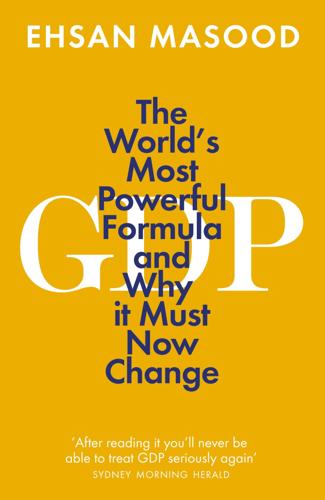
GDP: The World’s Most Powerful Formula and Why It Must Now Change
by
Ehsan Masood
Published 4 Mar 2021
He organized an international meeting in which the aim was to gather together the heads of the statistics offices in developing countries with the representatives of the donor agencies, all in the same room. The meeting lasted a week and took place in Sussex (rather than London), which minimized the chances of people leaving early. The government statisticians explained how they were caught in a tug-of-war. On the one side there was pressure from heads of government to make the figures look good, even if that meant falsifying data. On the other side was pressure from international agencies, including the UN, to measure things that had little relevance to national or local needs, and which often had the effect of distorting reality.
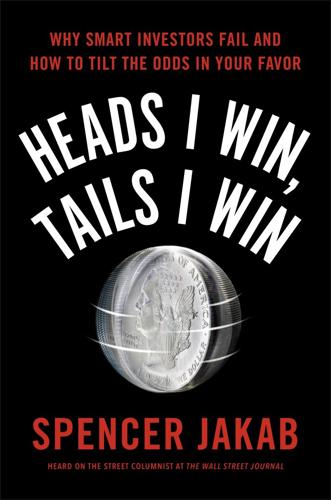
Heads I Win, Tails I Win
by
Spencer Jakab
Published 21 Jun 2016
ANNUALIZED RETURN BETWEEN START OF BULL MARKET AND END OF RECESSION Bull market start Return Jun-32 50.40% Jun-49 58.05% Oct-57 28.16% May-70 56.91% Oct-74 77.07% Aug-82 123.78% Oct-90 56.10% Mar-09 94.50% Long-term return 9.60% Source: Author calculations; S&P Dow Jones Indices One reason that economists are so slow to declare the beginnings or ends of recessions is that economic growth is calculated by government statisticians with a significant lag and often revised sharply higher or lower to boot. For example, the third and final report on how quickly the economy grew in the fourth quarter of 2014 from the Bureau of Economic Analysis was published on March 27, 2015, or nearly a full quarter later. Waiting for economists to measure the economy accurately is like watching grass grow and even less profitable.
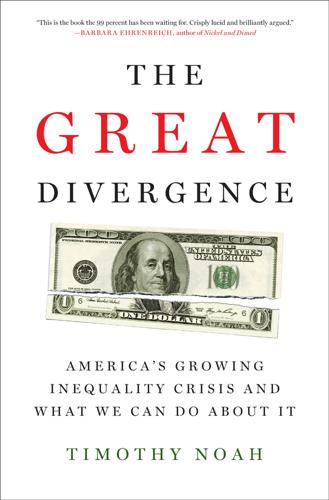
The Great Divergence: America's Growing Inequality Crisis and What We Can Do About It
by
Timothy Noah
Published 23 Apr 2012
The promoters and manipulators of these concerns have received, as their share of the spoils, permanent income claims, in the shape of securities, large enough to make Croesus appear like a pauper.10 King’s only solace for readers (and himself) was that incomes in the United States were more equal than in Prussia, France, and the United Kingdom. A century later, such comfort is no longer available. Today, incomes in the United States are more unequal than in Germany, France, and the United Kingdom. Two years after publishing his book, King left Wisconsin for Washington, D.C., to become a government statistician, but in 1920 he left that job to continue his research into income distribution in New York City at the newly created National Bureau of Economic Research. The NBER was a perfect embodiment of the Progressive era’s conviction that rational expertise was the best tool to address social problems.
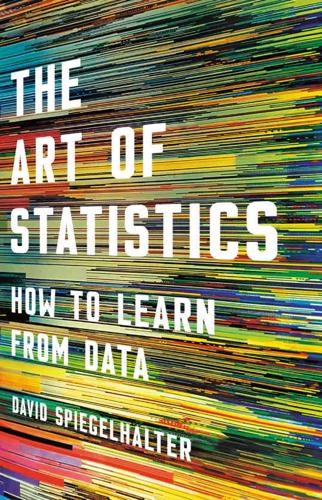
The Art of Statistics: How to Learn From Data
by
David Spiegelhalter
Published 2 Sep 2019
Check whether the magnitude of the effect is practically significant, and be especially wary of claims of ‘increased risk’. Data Ethics Increasing concern about the potential misuse of personal data, particularly when harvested from social media accounts, has focused attention on the ethical aspects of data science and statistics. While government statisticians are bound by an official code of conduct, the more general discipline of data ethics is still in the development stage. This book has covered the need for algorithms that affect people to be fair and transparent, the importance of doing honest and reproducible science, and the requirement for trustworthy communication.
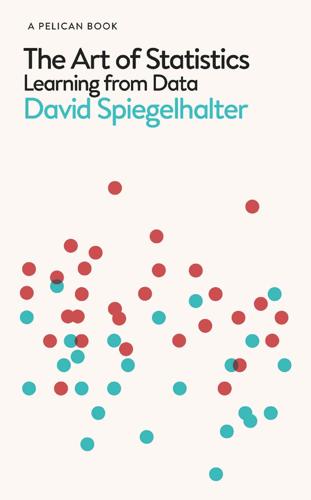
The Art of Statistics: Learning From Data
by
David Spiegelhalter
Published 14 Oct 2019
Check whether the magnitude of the effect is practically significant, and be especially wary of claims of ‘increased risk’. Data Ethics Increasing concern about the potential misuse of personal data, particularly when harvested from social media accounts, has focused attention on the ethical aspects of data science and statistics. While government statisticians are bound by an official code of conduct, the more general discipline of data ethics is still in the development stage. This book has covered the need for algorithms that affect people to be fair and transparent, the importance of doing honest and reproducible science, and the requirement for trustworthy communication.
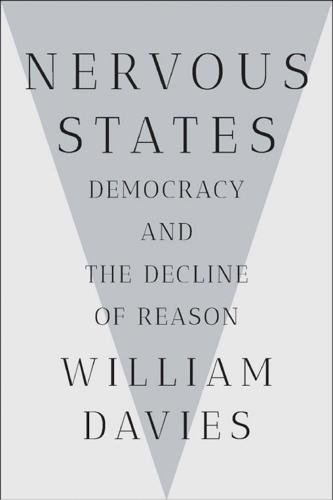
Nervous States: Democracy and the Decline of Reason
by
William Davies
Published 26 Feb 2019
And, as Arendt observed, if there is one thing most likely to convert engagement into enragement—more even than injustice—it is hypocrisy.18 It is sometimes questioned why antipathy to “elites” rarely manifests itself in scapegoating of the very rich. How can men as wealthy as Beppe Grillo, Aaron Banks, Andrej Babis, or Peter Thiel claim to be leading a movement against elites? To which the answer is: unlike a journalist, a government statistician, a member of parliament, or a lawyer, the rich never claim to be speaking for anyone other than themselves. They make no claim to public status, and therefore they cannot be accused of hypocrisy. The perceived arrogance of the expert or professional politician is in claiming some disembodied, dispassionate perspective, not available to the ordinary businessman, consumer, Twitter-user or crowd-member.
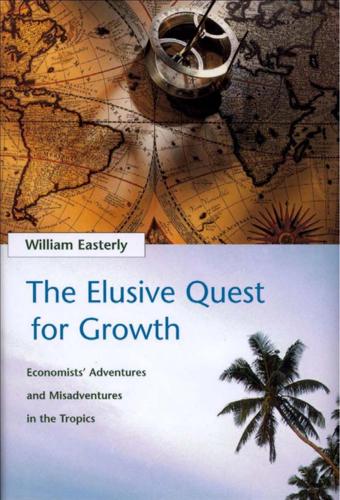
The Elusive Quest for Growth: Economists' Adventures and Misadventures in the Tropics
by
William R. Easterly
Published 1 Aug 2002
World Bank discussion paper 354. References and Further Reading 329 Schumpeter, Joseph. Capitalism, Socialism, and Democracy. New York: Harper. (Originally published 1942.) Seers, Dudley, and C. R. Ross. 1952. Report on Financial and Physical Problems of Development in the Gold Coast. Accra: Office of the Government Statistician. Shleifer, Andrei, and Robert Vishny. 1993. ”Corruption.” Quarterly Journalof Economics 108 (August): 599-617. Simon, Julian, ed. 1995. The State ofHumanity. Oxford: Blackwell. Slemrod, Joel. 1995. ”Do Cross-Country Studies Teach About Government Involvement, Prosperity, and Economic Growth?”
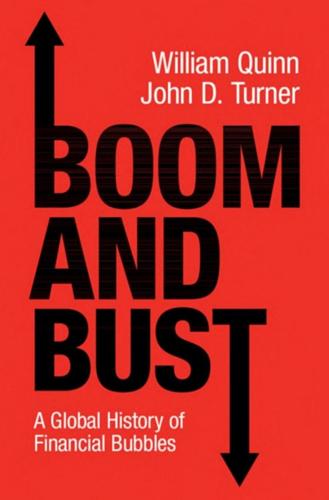
Boom and Bust: A Global History of Financial Bubbles
by
William Quinn
and
John D. Turner
Published 5 Aug 2020
This decree followed the collapse of the Australian Joint Stock Bank, one of the larger trading banks, on 21 April 1893. The second measure was the Bank Issue Act. This made bank notes a first charge on assets, gave the Governor of NSW power to declare bank notes legal tender and granted the government the right to inspect banks. At the start of May 1893, Timothy Coghlan, a government statistician, was dispatched to persuade the five major banks operating in NSW to accept the Act, but without success.85 However, when the NSW government learned of the imminent closure of the Commercial Banking Company of Sydney, it declared the notes of this bank plus the notes of the ‘Big Three’ to be legal tender.
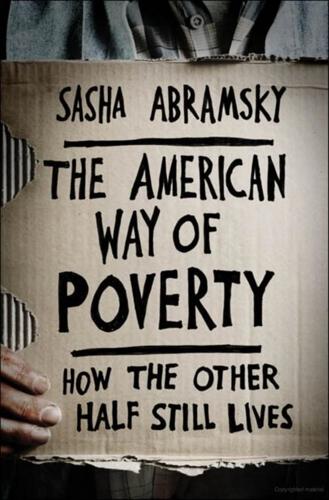
The American Way of Poverty: How the Other Half Still Lives
by
Sasha Abramsky
Published 15 Mar 2013
“At present, my baseline outlook involves a period of sluggish growth, followed by a somewhat stronger pace of growth starting later this year as the effects of monetary policy and fiscal stimulus begin to be felt,” Federal Reserve chair Ben Bernanke told the Senate Banking Committee in February 2008.2 Also testifying that same day, Treasury Secretary Henry Paulson declared that the economy was “fundamentally strong, diverse and resilient.”3 Subsequently, as one major part of the financial system after another collapsed in the months following, government statisticians concluded the economy was already in recession when Bernanke and Paulson made their Pollyannaish comments. Two months later, President George Bush told an audience in New Orleans that the country was experiencing a “slowdown,” not a recession.4 Instead of intervening to cool the overheated market, almost until the day the entire housing market edifice crumbled, the country’s top economic opinion-shapers were encouraging more people to take out ultimately unaffordable loans.

Shadow of the Silk Road
by
Colin Thubron
Published 1 Jan 2006
Intangibly, it has become more urbane, sensuous, perhaps more deceiving. The young men in their pirated Nike and Adidas tracksuits look barbered and self-conscious. In my hotel the suave owner summons a friend who speaks some English. But Ali is remorselessly himself. He is perhaps a little mad: a government statistician who seems to have no work. In his chaotic gait his body looks dragged forward by his craning head. He speaks fast, half comprehensibly. After my fear of not conversing, words are now poured over me in a hectic gabble. Ali is practising his vocabulary (‘utopia’ and ‘hypothesis’ are his favourites), and as we go his commentary becomes a farrago of archaic politesse and modern pieties: ‘You are very kind, sir.

The Theory That Would Not Die: How Bayes' Rule Cracked the Enigma Code, Hunted Down Russian Submarines, and Emerged Triumphant From Two Centuries of Controversy
by
Sharon Bertsch McGrayne
Published 16 May 2011
The federal government, desperate for economic data during the Depression, had hired “bright guys” to replace the clerks who had traditionally compiled statistics on unemployment, national income, housing, agriculture, and industry.1 Cornfield qualified as a bright guy, so he signed on as a government statistician for 26.31 a week, 1,368 a year. Washington, D.C., was still a segregated, southern city. “The rule of thumb was that, if you were Jewish, you could work for the Department of Labor and, if you were Catholic, you could work for the Department of Commerce,” explained Marvin Hoffenberg, a friend of Cornfield’s and later a UCLA professor.2 So Cornfield went to Labor.

What's Left?: How Liberals Lost Their Way
by
Nick Cohen
Published 15 Jul 2015
In practice, many parents do not value their daughters and pay prospective husbands and in-laws to take them off their hands. Women and girls can become disposable goods. If they are unlucky, the husband can throw them away if they don’t provide satisfaction, and go back into the market for a better model. Indian government statisticians reported that husbands and in-laws killed nearly 7,000 women in 2001 because they did not bring enough money with them. Everyone agrees the figure is an underestimate. So heavy is the burden of daughters, parents kill them before they are born. The sex testing of foetuses has left India with 933 women for every 1,000 men.
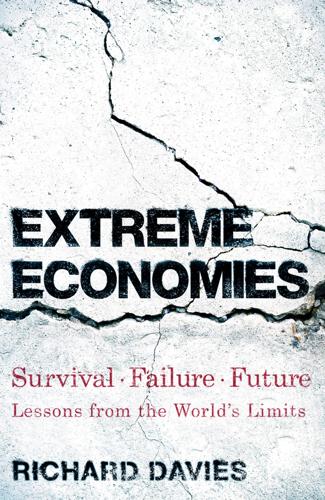
Extreme Economies: Survival, Failure, Future – Lessons From the World’s Limits
by
Richard Davies
Published 4 Sep 2019
When the current cohort of Japanese 100-year-olds were born, life expectancy was 44 for men and 45 for women (for their parents, born in the late nineteenth century, living to 60 would have been considered a feat). But huge improvements in sanitation, healthcare and income meant that life expectancy shot up within their lifetimes so that the predictions for this cohort were badly wrong. Their lives have been far longer than they or government statisticians expected. When I ask Shunetsu Suzuki, the star striker of the local over-70s football team, what has surprised him about his old age, his answer is simple: ‘Everything – I had no idea I would live this long!’ That feeling – that ageing was a shock – lies at the heart of the problems that Japan is facing and is something an influential idea in economics known as the ‘life-cycle hypothesis’ can help illuminate.

Finding the Mother Tree: Discovering the Wisdom of the Forest
by
Suzanne Simard
Published 3 May 2021
How they’d suddenly figured out that infections at four centimeters weren’t a problem but they were at two centimeters was odd; their discovery had been made the moment we’d published our papers. Another independent study, though, had verified that the majority of pine plantations were in poor health. But what got me most was an email from a long-respected government statistician, someone I admired and who’d approved our sampling approach, suggesting our design had not been replicated a sufficient number of times. Crisscrossing the mountains between Vancouver and Nelson, watching the beetle-killed forests turn into a mange of clear-cuts, my anger with forestry practices grew.

Sorting Things Out: Classification and Its Consequences
by
Geoffrey C. Bowker
and
Susan Leigh Star
Published 25 Aug 2000
The problem here is generic to all such efforts where diversity is the central issue in representing information. The Impact of the ICD To continue in a foundational vein, the ICD can be seen as one of the tools bound up in the origins of the welfare state (Ewald 1986, see chapter 3): the epidemiologists and government statisticians who originally drew it up were concerned with large-scale public health measures. It has often silently accompanied all major epidemiological work of this century. The power of a classification of disease can be seen, for example, in the debate about Britain’s mortality decline in the nineteenth century (Szreter 1988).

Sorting Things Out: Classification and Its Consequences (Inside Technology)
by
Geoffrey C. Bowker
Published 24 Aug 2000
The problem here is generic to all such efforts where diversity is the central issue in representing information. The Impact of the lCD To continue in a foundational vein, the I C D can be seen as one of the tools bound up in the origins of the welfare state ( Ewald 1 986, see chapter 3 ) : the epidemiologists and government statisticians who 140 Chapter 4 originally drew it up were concerned with large-scale public health measures. It has often silently accompanied all major epidemiological work of this century. The power of a classification of disease can be seen, for example, in the debate about Britain's mortality decline in the nineteenth century (Szreter 1 988).
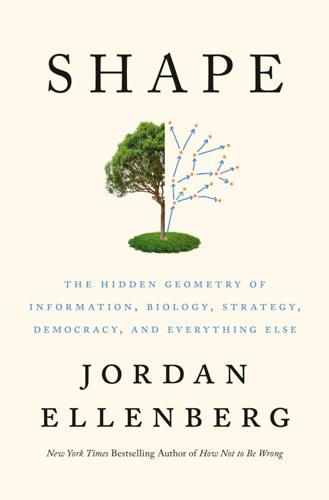
Shape: The Hidden Geometry of Information, Biology, Strategy, Democracy, and Everything Else
by
Jordan Ellenberg
Published 14 May 2021
“The inspection of the individual members of a large population is an expensive and tedious process,” is how Robert Dorfman put it. Dorfman was a well-known Harvard economics professor who in the 1950s and ’60s pioneered the application of mathematical models to problems of commerce. But back in 1942, he was a U.S. government statistician, six years out of college, where he had decided to focus on mathematics after concluding he had no future in his first-choice avocation, poetry. Quoted above is the first sentence of his classic paper, “The Detection of Defective Members of Large Populations,” which introduced the idea of the coin puzzle to epidemiology.

The Emperor of All Maladies: A Biography of Cancer
by
Siddhartha Mukherjee
Published 16 Nov 2010
” * Soot is a mixture of chemicals that would eventually be found to contain several carcinogens. The Emperor’s Nylon Stockings Whether epidemiology alone can, in strict logic, ever prove causality, even in this modern sense, may be questioned, but the same must also be said of laboratory experiments on animals. —Richard Doll In the early winter of 1947, government statisticians in Britain alerted the Ministry of Health that an unexpected “epidemic” was slowly emerging in the United Kingdom: lung cancer morbidity had risen nearly fifteenfold in the prior two decades. It is a “matter that ought to be studied,” the deputy registrar wrote. The sentence, although couched in characteristic English understatement, was strong enough to provoke a response.

IBM and the Holocaust
by
Edwin Black
Published 30 Jun 2001
Among Dehomag’s most important customers were the Trade Statistics Office in Hamburg, the Reichspost, and various national and local taxing offices. Decrees of the Reich Economics Ministry’s Kommissar for Price Control, beginning in 1936, required uniform reporting procedures by key industries. In most cases, the installation of IBM machinery was mandatory in order to comply. Government statisticians and Dehomag had developed coding systems for virtually all raw materials and finished goods. Eventually, the coding system would make it possible for the Nazis to organize its seizures with stunning specificity.37 None of Germany’s statistical programs came easy. All of them required on-going technical innovation.

Winds of Change
by
Peter Hennessy
Published 27 Aug 2019
Writing in the early 1970s, he recalled: I felt strongly that one of the disadvantages of a fixed currency exchange rate was the time lag and complexity of all the calculations. The rate now had become merely a measure. A floating rate would be a barometer and any weakness of the economy much more quickly detected by the market than by the Government statisticians. But this question, so often discussed, seemed to be beyond our power to decide unilaterally and still remains unresolved.61 It was in the wake of the July 1961 measures that Lloyd and the Treasury began to look in detail at a new peacetime version of tripartite government–industry–unions planning (the Attlee governments had tried with the Central Economic Planning Staff and the Economic Planning Board).

1967: Israel, the War, and the Year That Transformed the Middle East
by
Tom Segev
Published 2 Jan 2007
Ben-Gurion had an idea: the whole subject should be taken out of the government’s hands and given to the Jewish Agency, which by definition served only the Jewish population—if the government began to pay out birth incentives, “it would spend all its money on families with many children, and they are of course almost all Arabs.”* A government statistician, Roberto Bachi, wrote to Eshkol that the national peril posed by family planning must be explained to Jewish parents. This kind of campaign would best be left to some kind of nongovernment association. At the same time, information on family planning methods should be disseminated among the Arabs, and this, too, of course, would require “the utmost discretion.”
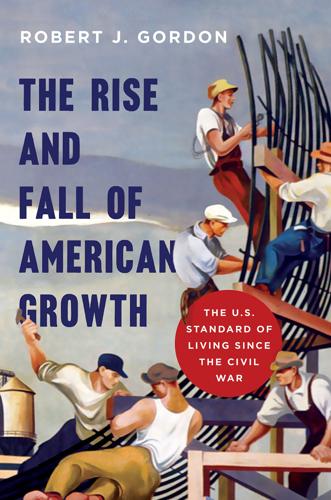
The Rise and Fall of American Growth: The U.S. Standard of Living Since the Civil War (The Princeton Economic History of the Western World)
by
Robert J. Gordon
Published 12 Jan 2016
There is no doubt that the 1970 Clean Air Act ultimately succeeded in greatly improving the nation’s air and, for instance, dramatically reduced the incidence of smog in the Los Angeles basin. But the decision to treat this as an increase in the quality of a motor vehicle instead of more general government infrastructure spending remains a dubious choice by the government statisticians. AUTOMOBILE FUEL ECONOMY, SAFETY, AND RELIABILITY Any success in achieving a substantial increase in fuel economy is bound to be the most important contributor to automobile quality—even greater than air conditioning—because fuel consumed over the life of the vehicle costs as much as the vehicle itself.